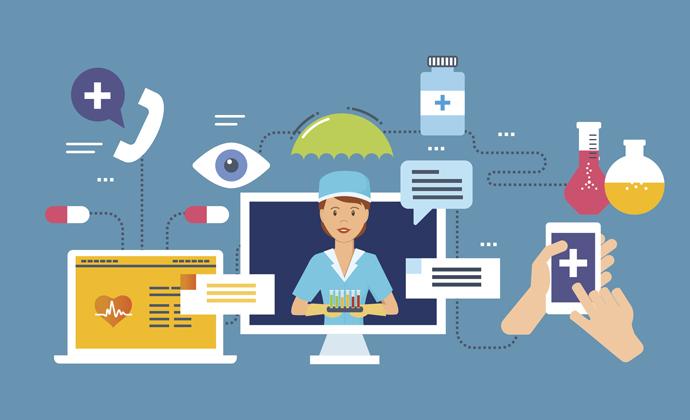In a world driven by technology, where information flows at lightning speed and data is the lifeblood of innovation, it comes as no surprise that healthcare is undergoing a remarkable transformation. Gone are the days of paper records tucked away in dusty cabinets and fragmented information scattered across medical facilities.
Today, we stand witness to an unprecedented revolution as electronic health records (EHRs) and big data converge to reshape the very foundation of the healthcare industry.
Imagine a healthcare system where patient information is seamlessly accessible, treatments are personalized with pinpoint accuracy, and public health concerns are detected and addressed swiftly. This is the dawn of a new era, where EHRs and big data stand at the forefront of this transformative journey.
Join us as we embark on an enlightening exploration, delving into the incredible potential of EHRs and big data in revolutionizing healthcare. Discover how these cutting-edge technologies are redefining patient care, empowering medical professionals, and propelling us toward a future where health outcomes are optimized and lives are saved.
The Role of Electronic Health Records (EHRs) in Healthcare Transformation
In the digital age, where data has become the currency of progress, healthcare is undergoing a revolutionary transformation propelled by Electronic Health Records (EHRs). These digital repositories of patient information are revolutionizing the way healthcare is delivered, transforming the industry with big data thereby increasing the importance of big data in healthcare.
Streamlining Patient Information Management
- EHRs eliminate the cumbersome paper-based records, offering a centralized and easily accessible system for healthcare providers.
- Medical histories, diagnoses, medications, and test results can be securely stored and shared, ensuring comprehensive and accurate patient information.
Enhancing Care Coordination and Communication
- EHRs facilitate seamless communication between healthcare providers, promoting collaboration and care coordination.
- Timely access to patient information enables faster decision-making and more efficient treatment plans, ultimately improving patient outcomes.
Empowering Patient Engagement
- EHRs empower patients by granting them access to their health records, enabling them to actively participate in their care.
- Patients can view test results, schedule appointments, and communicate with healthcare providers, fostering a more engaged and informed healthcare experience.
Enabling Data-Driven Insights
- EHRs generate vast amounts of data that can be analyzed to derive valuable insights for healthcare providers.
- Patterns and trends can be identified, leading to more accurate diagnoses, personalized treatments, and proactive disease prevention.
Driving Efficiency and Cost Savings
- EHRs streamline administrative tasks, reducing paperwork and freeing up valuable time for healthcare professionals.
- By eliminating redundant tests and optimizing workflows, EHRs contribute to cost savings and increased operational efficiency.
Harnessing Big Data in Healthcare
In the era of exponential data growth, healthcare is harnessing the power of Big Data to unlock new frontiers in patient care, research, and public health. As technology advances and data sources multiply, the healthcare industry finds itself at the precipice of a paradigm shift.
Let us delve into the remarkable ways Big Data is revolutionizing healthcare, transforming it into a realm where information is the key to better health outcomes.
Defining Big Data in Healthcare
- Big Data in healthcare refers to the vast and complex volume of structured and unstructured information generated across various sources, including electronic health records, medical imaging, wearable devices, and genomics.
- This wealth of data provides unprecedented opportunities to derive insights and improve healthcare delivery.
Enabling Predictive Analytics and Early Disease Detection
- By analyzing large datasets, Big Data analytics can identify patterns and trends, allowing for early detection of diseases and potential health risks.
- Predictive models can be developed to forecast disease progression, enabling proactive interventions and personalized treatment plans.
Personalized Medicine and Treatment
- Big Data empowers healthcare professionals to deliver personalized treatments based on individual patient characteristics, genetic information, and treatment response data.
- Precision medicine approaches can optimize therapies, minimize side effects, and improve patient outcomes.
Public Health Surveillance and Outbreak Detection
- Big Data analytics plays a crucial role in monitoring public health trends, detecting outbreaks, and facilitating rapid response to infectious diseases.
- Real-time analysis of data from various sources allows for timely interventions, resource allocation, and containment strategies.
Advancing Medical Research and Innovation
- Big Data fuels medical research by providing researchers with access to diverse and comprehensive datasets.
- Large-scale population studies, genomics research, and clinical trials benefit from the rich information Big Data offers, driving breakthrough discoveries and innovations.
The Synergy of EHRs and Big Data: How They Transform the Healthcare Industry
In the dynamic intersection of Electronic Health Records (EHRs) and Big Data, a powerful synergy emerges, reshaping the very landscape of the healthcare industry. As EHRs provide a robust foundation for collecting and organizing patient information, Big Data analytics unlock the untapped potential within these vast datasets.
Let’s explore the remarkable synergy of EHRs and Big Data and how they collaborate to usher in a new era of healthcare transformation.
Integration of EHRs and Big Data Analytics
- EHRs serve as rich repositories of patient data, while Big Data analytics offers the tools and techniques to extract valuable insights from this wealth of information.
- Integrating these technologies allows for comprehensive analysis and informed decision-making in real time.
Improving Clinical Outcomes through Data-driven Insights
- By combining EHRs and Big Data analytics, healthcare professionals gain access to a holistic view of a patient’s medical history, test results, and treatment outcomes.
- Data-driven insights enable evidence-based decision-making, leading to improved diagnosis, optimized treatment plans, and enhanced patient outcomes.
Enhancing Population Health Management and Preventive Care
- The synergy of EHRs and Big Data facilitates population-level analysis, identifying trends and patterns to target public health interventions and preventive care strategies.
- By proactively addressing health risks and tailoring interventions, healthcare providers can mitigate the impact of chronic diseases and improve overall population health.
Supporting Medical Research and Innovation
- EHRs combined with Big Data fuel medical research by providing researchers with vast datasets for analysis.
- This collaboration accelerates discoveries, fosters innovation, and supports breakthroughs in genomics, drug development, and personalized medicine.
Challenges and Considerations in Leveraging EHRs and Big Data Together
- Ensuring data privacy and security is of paramount importance when integrating EHRs and Big Data analytics.
- Ethical considerations, data interoperability, and data governance are critical aspects that need careful attention to maximize the potential of this synergy.
Future Directions and Potential Impact
With emerging technologies and innovative approaches on the horizon, the potential impact of this synergy is poised to revolutionize healthcare in ways we have yet to imagine.
Let’s embark on a journey into the future and explore the promising directions and transformative impact that lie ahead.
Emerging Technologies in EHRs and Big Data
- Artificial Intelligence (AI) and Machine Learning (ML) algorithms will play a pivotal role in analyzing vast amounts of EHR and Big Data, unlocking hidden insights,, and predicting outcomes.
- Integration of Internet of Things (IoT) devices, wearable technology, and remote monitoring will expand the data sources for EHRs and enhance real-time patient monitoring.
Predictions for Healthcare Transformation
- Personalized medicine will become more precise and accessible, leveraging the power of genomics, proteomics, and individualized treatment plans, supported by innovative healthcare mobile app development.
- Population health management will be revolutionized through predictive analytics, enabled by cutting-edge technologies including healthcare mobile app development, facilitating proactive interventions and targeted public health initiatives.
Ethical Considerations and Privacy Concerns
- As the use of EHRs and Big Data expands, safeguarding patient privacy and ensuring ethical data use will be of paramount importance.
- Striking the right balance between data-driven healthcare advancements and protecting patient rights will be a critical challenge.
Collaboration and Data Interoperability
- Seamless interoperability among different EHR systems and data sources will be crucial for unlocking the full potential of Big Data analytics.
- Collaboration among healthcare organizations, researchers, and technology providers will drive innovation and the sharing of best practices.
Revolutionizing Patient Engagement and Empowerment
- Advancements in EHRs and Big Data will empower patients with greater access to their health records, enabling active participation in their care.
- Patient-centric technologies, such as telemedicine and mobile health applications, will enhance convenience and promote patient engagement.
Conclusion
In the convergence of Electronic Health Records (EHRs) and Big Data, we stand at the precipice of a healthcare revolution. This transformative synergy empowers healthcare providers with comprehensive insights, personalized care, and data-driven decision-making.
As we peer into the future, we envision a healthcare landscape where precision medicine, predictive analytics, and patient engagement are the norm. While ethical considerations and privacy concerns demand our attention, the potential impact of this collaboration is boundless.
Embrace the power of EHRs and Big Data as they propel us toward a future where healthcare is optimized, outcomes are improved, and lives are transformed. The journey has just begun, and the possibilities are limitless.


